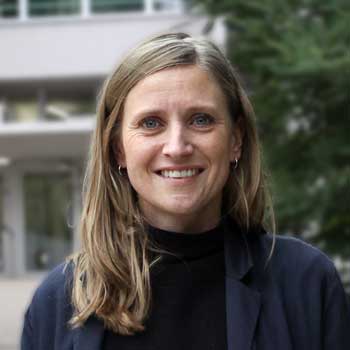Meet the researcher: Martha Nicholson – Exploring the role of midwifery and nursing in abortion care

Martha Nicholson is a PhD Candidate in the Faculty of Wellbeing, Education, and Language Studies at The Open University. She previously worked in sexual and reproductive health and rights for non-governmental organisations. She is doing a collaborative PhD studentship with the OU and the International Planned Parenthood Federation.
What is your doctoral research about?
I’m interested in how nurses and midwives are trained to provide person-centred abortion care, information, and support. Globally, mid-level providers such as midwives facilitate pregnant people’s access to abortion care. My research will focus on the individual, institutional and policy-level factors that influence how abortion training is delivered in educational settings, and how this affects healthcare workers’ roles in abortion care and support. To do this, I’ll work with midwifery and nursing associations and centres of education to collect quantitative and qualitative data on how staff and students are trained and mentored to support pregnant people’s choices, and the factors affecting delivery of the training.
I believe that it’s important to involve the communities that we do research with from the beginning to the end of a project. That way, stakeholders can shape the direction of the research and can benefit from the knowledge created. I’m happy to be part of a research group that has the same ethos at its core.
Why do you think this topic is relevant?
The role of midwifery and nursing in abortion care is an important topic because evidence shows that they are safe and acceptable providers of abortion services. However, abortion care is often left to doctors because of out-of-date laws and assumptions about the need to medicalise of abortion care. In fact, most abortions are not complicated. Early medical abortion is very safe, so it can be self-managed without a health professional being involved. However, the health system should be available to give guidance, information, and support if you want it or need it. I think by widening the group of professionals that can provide that care, it helps to destigmatize abortion and to make it more available logistically when people need or want an abortion.
Why did you decide to join the Centre for the Study of Global Development?
Joining the centre is a good way for me to learn about other research people are doing, potential collaborations and opportunities to grow as a researcher.
What would be your advice to future doctoral students?
Make sure that you're doing something that you really believe in, are interested in and that you are determined to see all the way through. I've heard that some people get a bit tired of their research two or three years in, so it's good to consider whether you’ll continue to have energy for that research project idea you have now all the way through to the end!
Find out more about Martha Nicholson and her research.
This interview was conducted by Motunrayo Oladeji.
Connect with us
Whatever your reasons for wanting to connect with us, you can contact us via email or social media on the addresses below
CSGD email
CSGD on Bluesky
CSGD on LinkedIn
Sign up to our mailing list to receive the latest news on our research, events and publications.
.jpg)